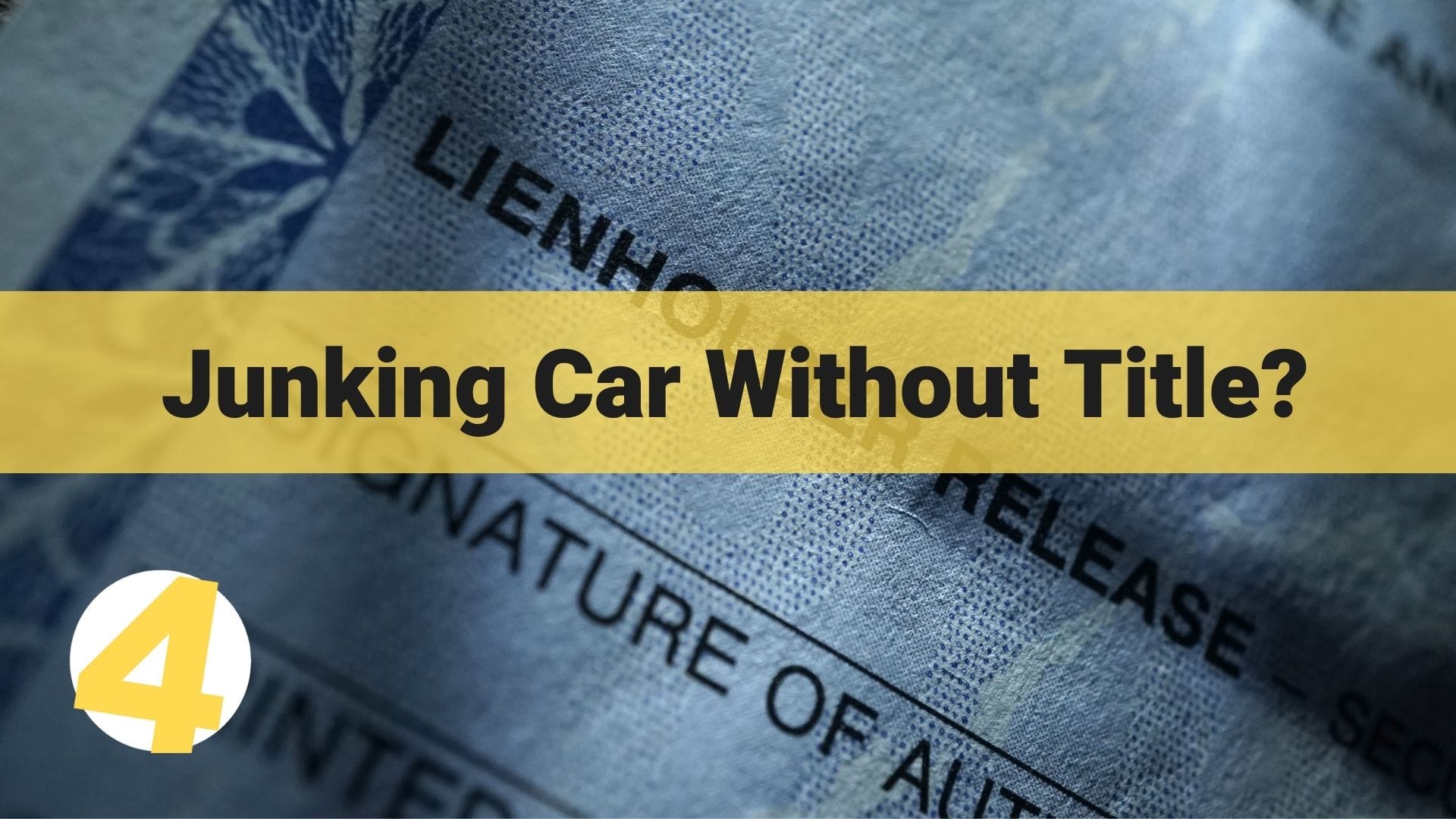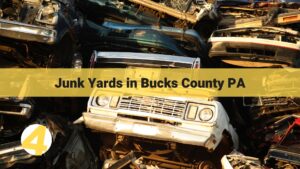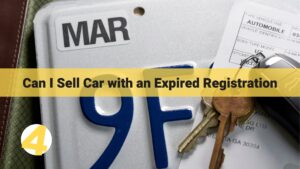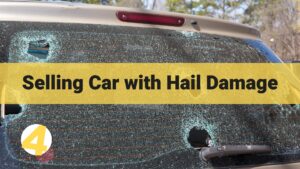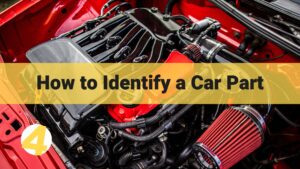How to junk a car without a title? Follow these steps:
- Verify the car’s ownership.
- Find a junkyard that accepts cars without titles.
- Gather documents.
- Agree on a price.
- Arrange for a pick-up or delivery of the car.
- Ensure you receive a sales receipt or equivalent documentation.
Keep reading to get a clear understanding of the process, potential challenges, and best practices when junking a car without a title.
How to Junk a Car Without a Title
Junking a car without a title can be a bit more complex compared to when you have one, but it’s not an impossible task. Here’s a comprehensive guide on how to go about it:
Step 1: Verify Local Regulations
Before anything else, check with your local Department of Motor Vehicles (DMV) or equivalent agency to understand the regulations regarding selling cars without titles. Some places might have strict rules, while others might be more lenient.
Step #2: Research Potential Junkyards or Scrap Yards
Not every junkyard or scrap yard will accept cars without titles. Call around and inquire about their policies. It’s advisable to choose reputable yards that have good reviews to avoid potential scams or complications.
Step #3: Gather Alternative Documents
While you might not have the title, other documents can sometimes serve as alternative proof of ownership. This could include the following:
- Vehicle registration
- Bill of sale
- Proof of insurance
- Affidavit of Ownership (if allowed in your jurisdiction)
Step #4: Get a Quote
Once you’ve identified potential junkyards willing to take the car, obtain quotes. Given the lack of title, the offer might be lower, but it’s still worth shopping around for the best deal.
Step #5: Prepare Your Car
Remove all personal belongings from the car. If the car has insurance, make sure to cancel it.
If possible, consider draining fluids like oil and antifreeze to make the car more environmentally friendly for junking.
Step #6: Finalize the Deal
Ensure the agreed-upon price is in writing. Sign any required paperwork. If the junkyard prepares a contract or bill of sale, read it carefully before signing. Hand over the car keys and any documents you have.
Step #7: Notify Local Authorities (if required)
Depending on your local regulations, you might need to inform the DMV or another relevant agency that you’ve sold the car, even if it’s for junking. This step is crucial to relieve you from any future liability associated with the vehicle.
Step #8: Ensure the License Plates Are Returned or Recycled
In many jurisdictions, license plates remain associated with the owner and not the car. Ensure they are returned to the DMV or destroyed to prevent misuse.
Step #9: Get a Receipt or Bill of Sale
Always obtain a receipt or bill of sale from the junk removal company. This document serves as proof of the transaction and can be vital if any disputes arise in the future.
Step #10: Follow Up
If the junk removal company commits to specific actions, like sending parts of the car for recycling or donating a portion of the proceeds, follow up to ensure they fulfill their promises.
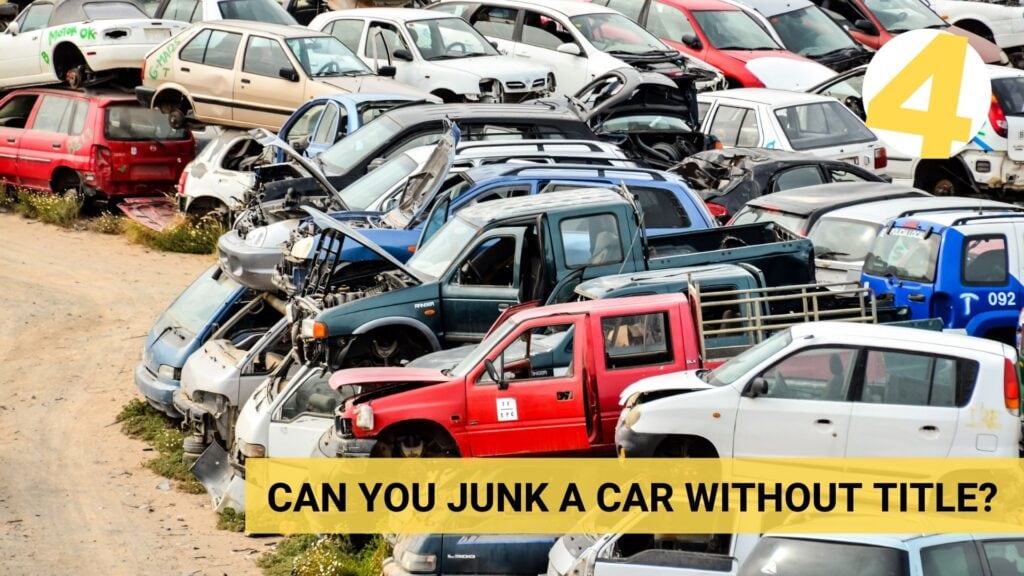
Junking Car Without Title – Is It Possible?
Now that you know how to junk a car without a title, let’s go into the specifics. While junking a car without a title is possible, it often comes with its set of challenges. Typically, a title proves ownership, making the process straightforward. Here are the possible circumstances you can be allowed to junk a car without a title:
- Junkyard’s Policy. Some junkyards have policies that allow vehicles without titles. They might request other documents that prove your ownership, such as a registration or a bill of sale.
- Older Vehicles. Some regions and junkyards allow older cars, often over a specific age, to be junked without a title.
- Affidavit of Ownership. Some states permit an “Affidavit of Ownership” or a similar document in lieu of a title. This legal document asserts you are the owner of the vehicle.
Meanwhile, here are the circumstances when junking might not be allowed:
- State Regulations. Many states require a car title to sell to a junkyard. It’s a measure to prevent theft or the illegal sale of vehicles.
- Junkyard Restrictions. Even if state laws are flexible, individual junkyards might have stricter policies and not accept cars without titles.
- Liens on the Vehicle. If there’s a lien against the car (meaning you owe money related to the vehicle), you might face issues. The lienholder has a legal claim to the car until the debt is cleared.
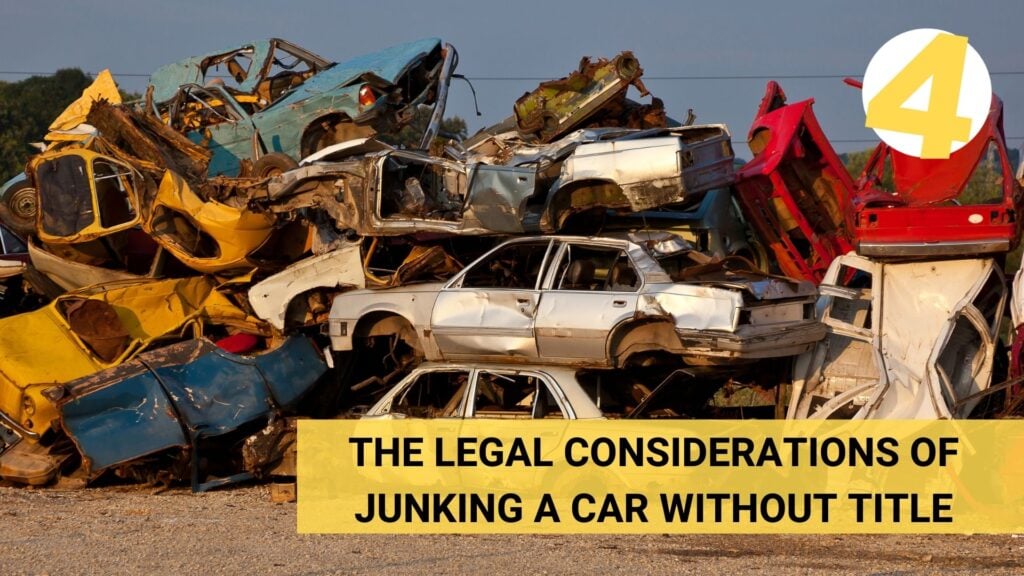
Legal Considerations
A car’s title isn’t just a piece of paper—it’s a legal document that proves ownership. Hence, selling or junking a car without one involves some legal intricacies.
Legal Requirements and Regulations
- Proof of Ownership. While the title is the gold standard for proving ownership, some jurisdictions might accept alternate documents, such as a registration card or bill of sale.
- Release of Liability. When selling or junking a car, it’s often required to notify the DMV about the change in ownership.
- Lien Clearance. If there’s a lien on the car, it complicates matters. The lienholder, often a bank or a financial institution, has a claim to the car until the associated debt is cleared.
Potential Legal Risks
- Accusations of Theft. Selling a car without a title could raise suspicions of theft, especially if the buyer or junkyard isn’t diligent in verifying ownership.
- Fraudulent Sales. If someone sells a car they don’t own (because they lack the title), it can lead to accusations of fraud, a serious offense that can result in fines or even jail time.
- Future Liabilities. If you don’t properly notify the relevant authorities (like the DMV) when you sell or junk the car, you might still be considered the legal owner. This means if the car gets involved in any legal matters, such as accidents or crimes, you might be held responsible.
How to Avoid Legal Risks
- Document Everything. Maintain a record of all transactions. Even if you don’t have the title, keep copies of any alternate proof of ownership, correspondence with the buyer or junkyard, and any other relevant paperwork.
- Communicate with the DMV. Always inform your local DMV about the sale or junking of your car. Obtain a release of liability form if available.
- Verify the Buyer. If you’re selling to a junkyard, research their reputation. Ensure they are a legitimate business and understand their requirements clearly.
- Consult with Legal Counsel. If in doubt, consulting with a lawyer who specializes in automotive or property law can provide clarity.
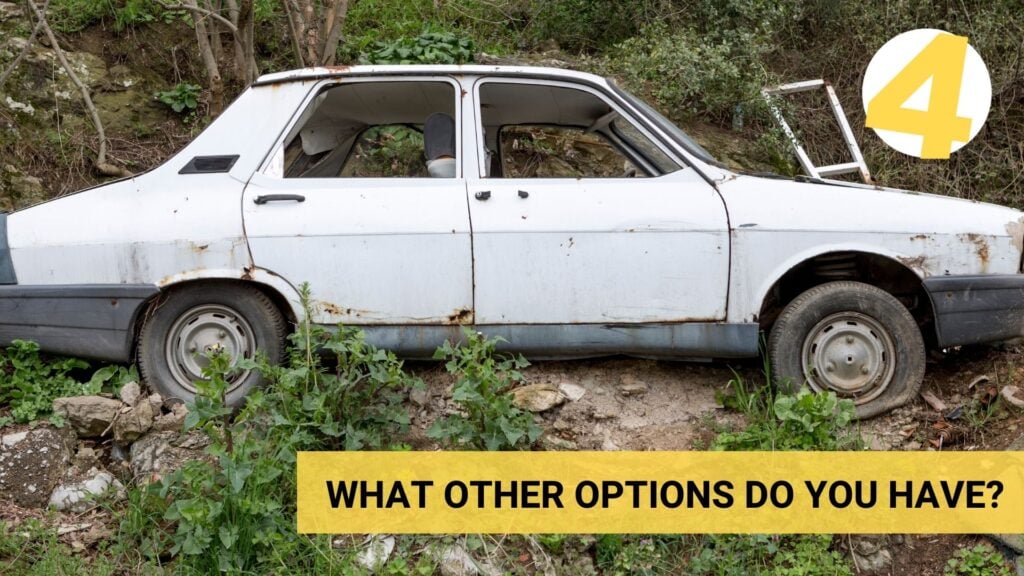
Alternative Options to Junking a Car Without a Title
If you’re facing challenges junking a car without a title, you’re not out of options. Here’s a breakdown of some of these choices:
Selling for Parts
Pros:
- Often, selling a car piece by piece can yield more profit than selling it as a whole.
- Some parts, especially if they’re in good condition or are rare, can be in high demand.
- Since you’re selling individual parts and not the car itself, the title may not be necessary.
Cons:
- Dismantling a car and selling its parts can be a lengthy process.
- You’ll need a place to store the car and its parts as you sell them off.
- Not all parts may sell, leaving you with leftover components.
Donating the Car
Pros:
- You can support a good cause and possibly get a tax deduction.
- Some charities are more flexible about the absence of a title and might assist with the paperwork.
- Many organizations offer to tow away the car at no cost to you.
Cons:
- Unlike selling, you won’t get immediate cash from donating.
- While some charities might be flexible, you’ll often still need some form of ownership proof.
Obtaining a Duplicate Title:
Pros:
- With a duplicate title, you re-establish your legal ownership of the car.
- Selling or junking the car becomes more straightforward with a title in hand.
- You’ll avoid potential legal complications associated with not having a title.
Cons:
- Acquiring a duplicate title requires a visit to the DMV, filling out paperwork, and potentially waiting for processing.
- There’s often a fee associated with obtaining a duplicate title.
- You’ll need to provide certain documents, such as proof of identity, to get a duplicate title.
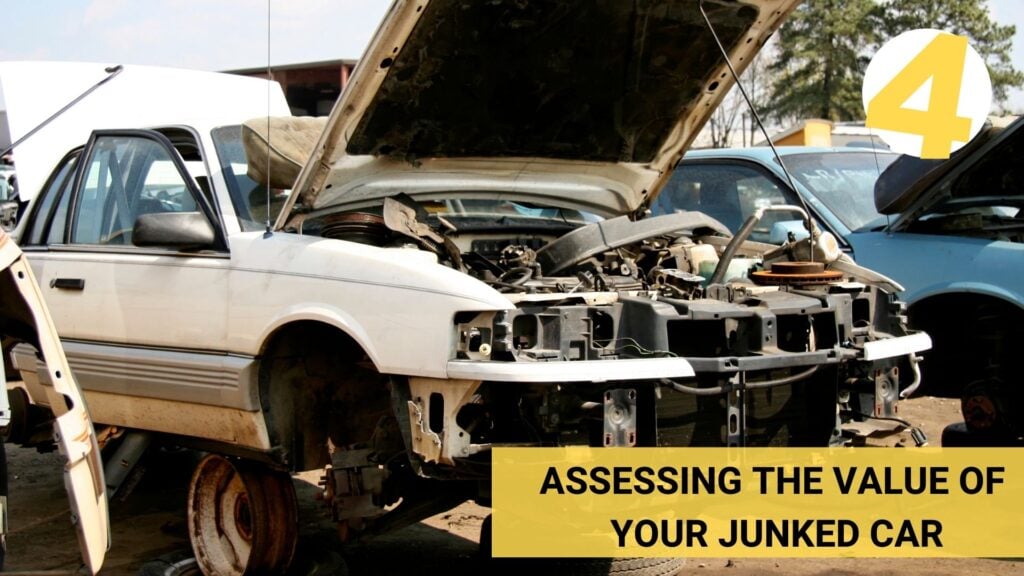
Assessing the Value of Your Junked Car
Determining the value of a junked car, especially without a title, can be a challenge. However, it’s crucial to have a realistic understanding of its worth to ensure you’re getting a fair deal.
Understand the Basics
A junked car’s value is often derived from two primary sources:
Salvage Value. This is the amount you’d get if the car’s components and materials were sold individually, minus the cost of labor and other expenses associated with dismantling the vehicle.
Scrap Metal Value. If the car is beyond salvaging any useful parts, its primary value lies in the weight of its metal, which can be sold to scrap yards.
Evaluate the Car’s Condition
Even if it’s being sold for junk, if the car runs, it’s likely worth more. Meanwhile, a car with minimal rust and damage will have a higher scrap metal value. Functional electronic components, leather seats, and other high-quality interior parts can also add value.
Research Online Estimation Tools
There are various online tools and websites where you can input specifics about your car, such as make, model, age, and condition, to get an estimated value. While these are just estimates, they can give you a starting point for negotiations.
Check the Current Scrap Metal Prices
The price of metals fluctuates based on market demand. Check current rates for metals like steel, aluminum, and copper, which are commonly found in cars.
Consider Rare or Valuable Parts
Some older cars might have parts that are in high demand in niche markets or for classic car restoration projects. If you have such parts, they can significantly boost the value of your junked car.
Factors Affecting Selling Price
- Title Availability. As discussed, the absence of a title can lower the value of your car, as it adds a layer of risk and complexity to the sale.
- Location. Proximity to the junkyard or buyer can influence the price, especially if towing is involved.
- Car’s Age. While older cars generally fetch lower prices, classic or vintage cars can be exceptions.
- Size and Weight. Larger vehicles, like SUVs, typically contain more metal, which leads to a higher scrap value.
- Demand. If there’s a high demand for parts of your specific car model, its value can increase.
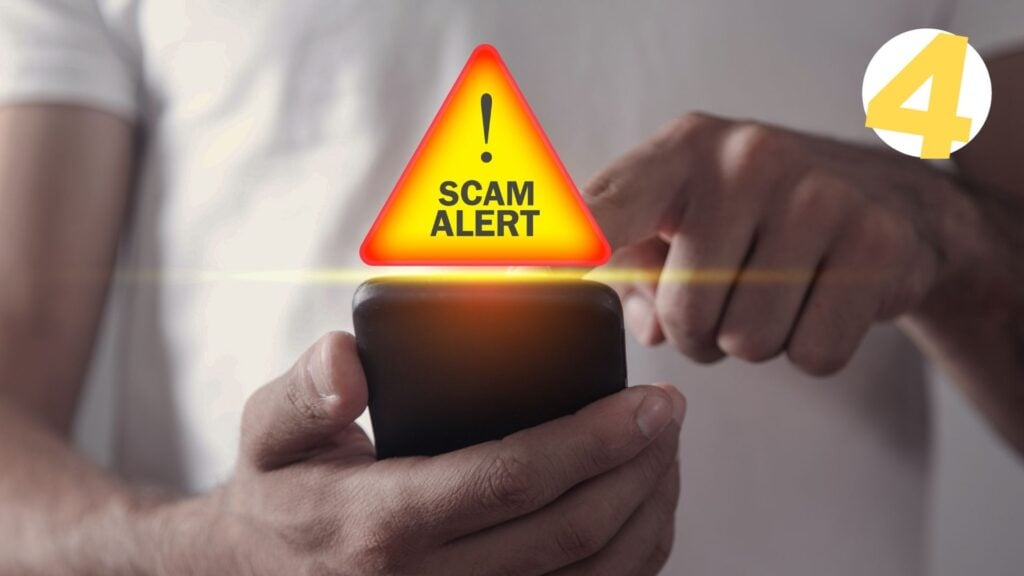
Protecting Yourself from Scams
When you’re trying to obtain cash for junk cars, especially without a title, you might find yourself in a more vulnerable position to scams or unscrupulous deals. Here’s how you can ensure you’re not falling victim to scams and maintain the integrity of the transaction:
Do Your Research
Before dealing with companies that offer cash for junk cars, do a quick online search for reviews or testimonials. Previous customers’ experiences can provide insights into the business’s reliability. Ensure the company is licensed and has the necessary permits to operate. Many jurisdictions require scrap and salvage businesses to have specific licenses.
Avoid “Too Good To Be True” Offers
If a buyer offers a price significantly higher than other quotes you’ve received, especially without seeing the car, be cautious. Scammers often lure victims with such offers only to scam them later.
Insist on Clear Paperwork
Even without a title, any transaction should be accompanied by a clear paper trail. This might be a bill of sale, a receipt, or a junkyard’s formal acknowledgment of the transaction. Ensure all details, like the car’s condition, agreed price, and terms of the transaction, are clearly mentioned.
Beware of Last-minute Price Changes
Some unscrupulous buyers might agree to one price over the phone and then lower the offer significantly upon arrival, hoping you’ll accept it to avoid the hassle. Stand firm on the agreed-upon price, or be ready to decline the deal.
Verify Payment Method
Insist on secure payment methods. Cash or a cashier’s check is preferable. Be wary of personal checks or promises of future payment. If paid by check, ensure it clears before transferring the car or any related documents.
Avoid Personal Data Sharing
Limit the personal information you share. Scammers might pretend to need certain data for “official” purposes, only to misuse it later.
Confirm Vehicle Transfer
Once the deal is done, ensure that the vehicle’s responsibility has been transferred. Some areas might have a “Release of Liability” form to prevent future liabilities, such as parking tickets or crimes associated with the car, from coming back to you.
Consult Authorities if in Doubt
If a deal raises suspicions, don’t hesitate to consult the local police or the Better Business Bureau. They might provide insights into common scams or specific entities.
Ready to Sell Your Junk Car?
It may be hard at first to understand the details and legalities of junking a car without a title. But with the right knowledge, preparation, and partners by your side, this process can be both rewarding and environmentally responsible. Remember, the essence is not just in removing an old vehicle but in ensuring its components are dealt with sustainably.
For those seeking a trusted partner to assist in getting cash for junk cars, we at Cash4Cars know the industry inside and out. With a team of professionals who understand the nuances of car removal, we ensure your experience is free from complications. Aside from our comprehensive services, we are committed to making the entire process rewarding for our clients.
Imagine the convenience of having your vehicle picked up for free and then receiving payment on the spot. This eliminates the often-dreaded waiting periods associated with other services. So, if you’re contemplating how best to handle your old, untitled car, look no further.
Let Cash4Cars be your guide in getting cash for junk cars. If still in doubt, call us. Let’s talk business and how you can effortlessly sell your junk car even when you don’t have its title.

